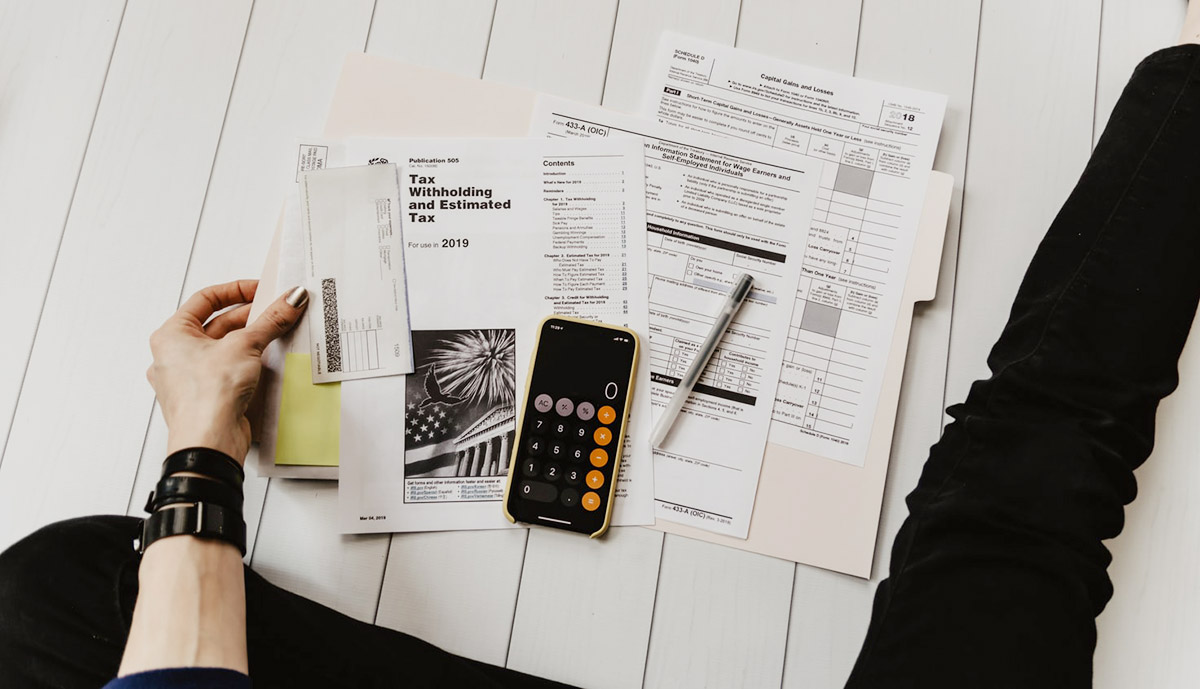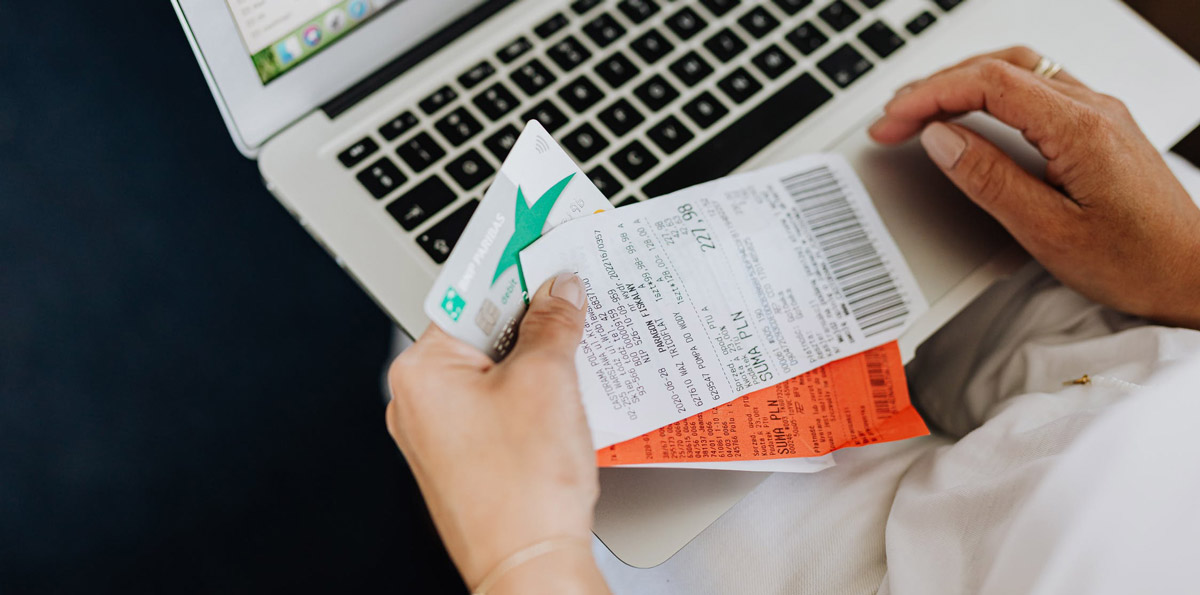Generally, when preparing your tax returns, you want to claim as many suitable businesses expenses as you can. This is because your tax is directly determined by how much your “taxable profit” is.
Taxable profit = Income – Expenses
So, the more business expenses you are able to claim, the lower your taxable profit, which in turn means, less for the tax man.
But it is very important that you do not mix your private expenses with your business expenses. You do not want to commit tax fraud, or be caught lying on your tax return. The consequences can be severe.
But, if you do have business expenses that are eligible, then you should definitely make the effort to claim as many as possible. The expenses one can claim for their business, greatly depends on the industry and the nature of the business, but below you can find a list of some of the most common expenses that freelancers and self-employed people should consider:
The 12 most common expenses for freelancers and self-employed people
- Electronics hardware (depreciation)
- Electronics repairs and maintenance
- Software
- Home Office (utilities)
- Home Office (repairs, maintenance, fixtures)
- Travel
- Entertainment
- Education
- Gifts
- Memberships/subscriptions
- Professional services
- Stationary/supplies
For a more detailed explanation for each category, along with some examples, please see below:
1. Electronics hardware (depreciation)
This category can include laptops, cell phones, cameras, printers or the new graphics card you picked up for editing your videos. Maybe you bought an iPad that you take to your client meetings for product presentations. But keep in mind, these items generally cannot be written off as an expense. Assuming you only use them for business purposes (and not private), you can classify them as a business asset, and claim the depreciation expense every year, while you continue to use them.
2. Electronics repairs and maintenance
Generally, there are certain costs involved with running your electronics. Some examples of such costs are your phone package that may include 4G, or the printer’s ink cartridges, or your antivirus software on your laptop. Repairs and maintenance of your devices are also a business expense. Upgrading of the devices gets more complicated as it depends on the amount spent in relation to the original value of the asset.
3. Software
Did you download any apps that help you run your business? Or maybe you needed an industry specific software, or the pro-version of Windows Office. As long as you bought them for the exclusive purpose of using them for your business, you can claim them as an expense.
4. Home Office (utilities)
This is especially relevant in a post COVID-19 world, since so many are choosing to work from home. If you have a room, or a basement or maybe have turned your garage into a studio or an office for your business, then you are entitled to claim many of your household expenses in proportion to the size of your home. So, if your office makes up 10% of the total size of your home, then 10% of your rent, electricity, water, gas, home insurance, internet, phone, etc.
5. Home Office (repairs, maintenance, fixtures)
You can also claim repairs and maintenance work carried out in your office, such as fixing the floor boards, or a new paint on the wall. Also, if you bought any furniture specifically for your office, such as your work desk, chairs, lighting, then depending on their value, they may be classed as a business asset (for depreciation) or an expense. Please note that you should not have a bed in your home office.
6. Travel
This can range from long distance travel, such as flights and hotel costs for the travel blog you write, or more regular day to day costs such as traveling within the same city to meet with your clients. If you have your own car, then you should track the mileage and distance you travel for work. Parking fees for work meetings can also be claimed.
7. Entertainment
A wide range of activities go under this category. The most common one would be taking your clients or business partners to a meal outside, or getting a few drinks with them. As long as the main intention/purpose of the meeting was work related, then you are entitled to claim 50% of the costs. If you wanted to throw a big thank you party for your client, with food and drinks, remember to keep track of those expenses and keep all the receipts.
8. Education
With more and more courses available online, it has never been easier to upskill yourself from the comfort of your own home/office. More and more universities and institutions are now offering online courses, especially after the COVID-19 crisis. If you feel like you need to sign yourself up to some courses, in order to learn new skills that will help you with your business, then you should definitely claim it as an expense. Example: Upskilling your programming language on Udemy.
9. Gifts
In some cases, gifts may fall under the entertainment expenditure category and only be eligible for 50% of their costs. An example of this is buying a bottle of wine for your client. On the other hand, you should be able to claim the full amount on gifts that are not food and beverage or entertainment related in nature. Although many countries have put a limit on the yearly amount that can be claimed as a gift. Please check the eligibility with your local accountant.
10. Memberships/subscriptions
Do you subscribe to any industry specific magazines, or are part of an association where you need to pay a yearly membership fee? These expenses are commonly forgotten as you tend to only pay them once a year, or are deducted automatically every month. Go through your bank and credit card statements and see if you spot any such expenses.
11. Professional services
Generally, the costs related to your accountants and lawyers that help and advise you with your business.
12. Stationary/supplies
These tend to be consumable goods that are used up in the process of carrying out your business. These include items such as pens, booklets, printing paper, calendars, business cards, etc.
Please remember that you need to remember to keep track of all of your business expenses and their receipts. You will need to keep them for multiple years in case of an audit by the tax authorities. They act as the evidence justifying your decisions in claiming them as a business expense. The onus of proof is on you, the taxpayer.
Physical vs Digital shoe boxes
As a business owner, you should really make an effort to arrange the business receipts and invoices in a nice and orderly manner, along with all the other relevant business information. Accountants do not appreciate receiving a shoe box full of unsorted and messy receipts and paperwork. In the near future, we plan on releasing more features on our website, that will help people better prepare their digital shoe boxes.
In the meantime, if you have any questions or topics you would like us to write about, please get in touch. Thank you for reading.








